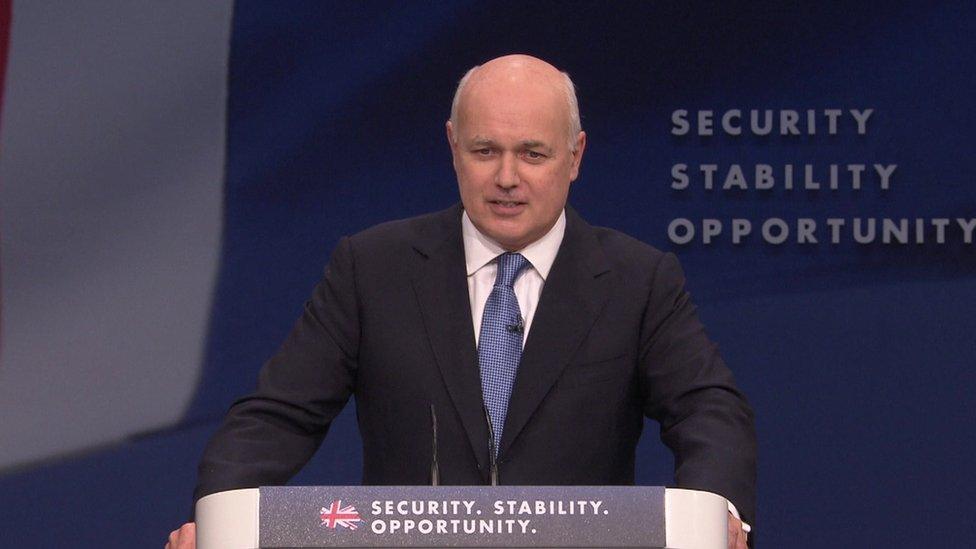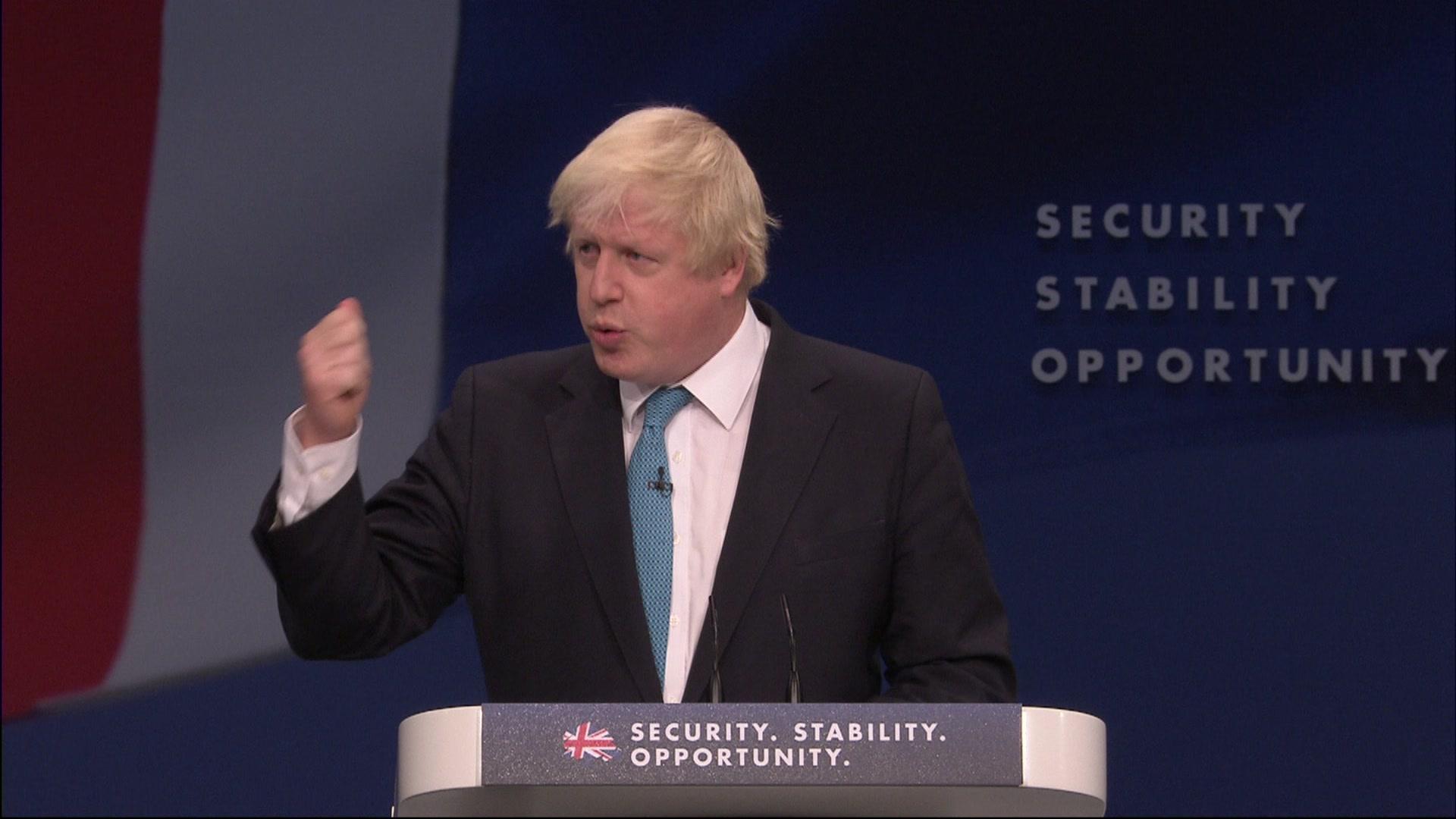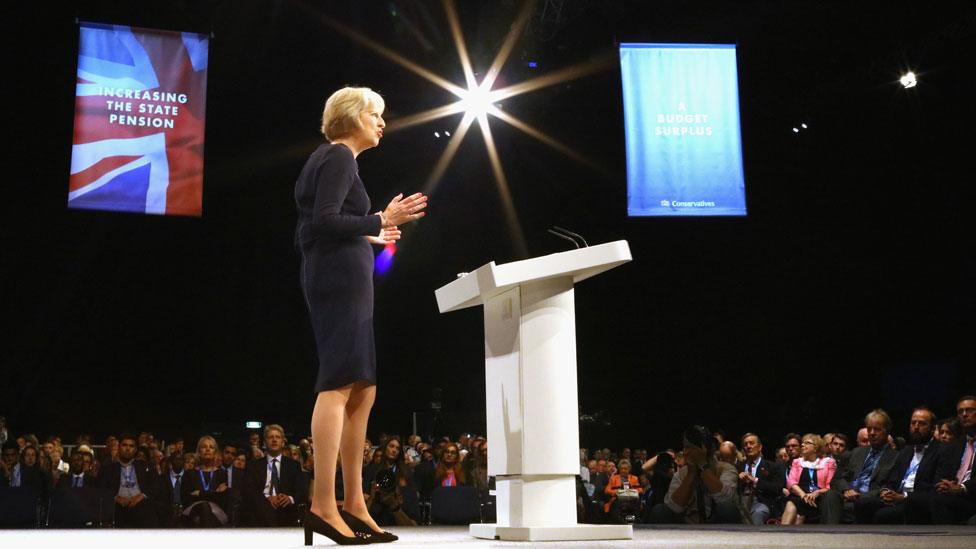Iain Duncan Smith: Tory welfare reforms 'restoring lives'
- Published

Iain Duncan Smith has insisted the government must "rededicate itself" to its shake-up of welfare, saying its mission is to "restore people's lives".
The work and pensions secretary told the Tory conference the party was tackling the "something for nothing" benefit culture inherited from Labour.
He warned "the job was not done" and vowed to ensure to make work pay and reduce numbers on sickness benefits.
He also denounced the "bile" of protesters outside the conference.
Addressing Conservative activists, many of whom have said they have been subject to personal abuse from anti-austerity protesters as they entered the Manchester venue, Mr Duncan Smith said his party would "not be moved" and challenged Jeremy Corbyn and other senior Labour figures to disassociate themselves from such behaviour.
"You've had to come through the line up outside of the bile and hatred of what is now the Labour Party," he said. "That is who they really are. That is what they represent."
'Value of work'
Proposed curbs to working tax credits have caused unease among some Tory MPs but Mr Duncan Smith defended the policy, saying the existing tax credit bill had become unsustainable and accused the last Labour government of using the benefit as an electoral "bribe".
Since 2010, he said, the Conservatives had delivered "against the odds" in terms of boosting employment by every measure and, with the party now no longer in coalition with the Lib Dems, it would go much further in reshaping the welfare state.
Conservative welfare philosophy, he told his audience, was "rooted in human nature, not utopianism nor empty pity" and its reforms, such as the cap on household benefits, the introduction of Universal Credit and the national living wage, were driven by the objective of "ending poverty, not entrenching it and restoring lives, not parking them".
Fairness must be at the heart of the welfare state, he insisted, not just for the most vulnerable but for the taxpayer as well.
The party, he said, did not regard those unable to work as "victims", insisting that many of the long-term sick and those with disabilities wanted to return to employment and the government would help them to "work their way out of poverty".
"We have to raise the value of work - but not as Labour tried to do with the taxpayer subsidising wages through tax credits," he said.
"As Conservatives we don't want people to work just for tax receipts. We want people to work because it's best for them, their family and their communities... all our reforms have a simple principle at the heart of them: to restore lives."
He added: "Surely, we want to know that what we do in government rebuilds and restores the least of us. That is our purpose, not to rejoice at victory, no matter how hard won but to re-commit, even re-dedicate ourselves to this simple yet vital task."
- Published6 October 2015

- Published6 October 2015
